Informationen zur Zeitschrift
Startseite » Programm » IJAR 3-2019 | Free Contributions
IJAR 3-2019 | Free Contributions
Erscheinungsdatum : 18.12.2019
29,00 € inkl. MwSt.
Inhalt
IJAR – International Journal of Action Research
3-2019: Free Contributions
Danilo R. Streck: Editorial
Articles
Marianne Kristiansen / Jørgen Bloch-Poulsen: Does organizational action research have a future?
Norman Chivasa: A participatory approach to peacebuilding evaluation in Seke district, Zimbabwe
Gunhild Bjaalid / Rune Todnem By / Bernard Burnes / Aslaug Mikkelsen / Olaug Øygaarden: From silos to inter-professional collaboration: A mixed methods case study utilizing participating action research to foster multidisciplinary teams in a day care surgery department
Aline Lemos da Cunha Della Libera / Edla Eggert: The Learning Web in the Systematization of Experiences – An Analysis of Research Processes with Artisan Women
Vahid Rahmani Doqaruni / Behzad Ghonsooly / Reza Pishghadam: Second Language Teachers’ Reasons for Doing/Not Doing Action Research in Their Classrooms
Download of Table of Contents / Inhaltsverzeichnis herunterladen
Extracts / Leseproben
Download of single articles (partly in Open Access / partly fee-based): ijar.budrich-journals.com
You can register here for the IJAR alert.
Einzelbeiträge zum Download (teils Open Access / teils kostenpflichtig): ijar.budrich-journals.com
Sie können sich hier für den IJAR-Alert anmelden.
Zusätzliche Information
| Verlag | |
|---|---|
| ISSN | 1861-1303 |
| eISSN | 1861-9916 |
| Jahrgang | 15. Jahrgang 2019 |
| Ausgabe | 3 |
| Erscheinungsdatum | 18.12.2019 |
| Umfang | 102 |
| Sprache | Englisch |
| Format | 17 x 24 cm |
| DOI | |
| Homepage |
Autor*innen
Schlagwörteraction research, Artisan women, Day care surgery, Evaluation, Hospital organisation, Inter professional teams, Mixed-Methods-Designs, Organisational change, Participant research, participation, Participatory peacebuilding, Patient based organisation, power, Simultaneity, Sociotechnical design, systematization, Teacher research engagement, Teachers’ reasons, Zimbabwe
Abstracts
Does organizational action research have a future? (Marianne Kristiansen, Jørgen Bloch-Poulsen)
This is not an ordinary article. It was written in response to some questions that the current and the former IJAR editors-in-chief asked us to reflect on. We did so gratefully, because this was a good opportunity to look back on 25 years of doing AR in organisations. The article describes four challenges of future organisational action research. Firstly, in the future an increasing number of skilled employees will make it necessary to move from co-influence of how to implement goals, to a greater degree of co-determination. Secondly, the article argues there is a need for an increased focus on documenting AR processes. Thirdly, the article calls for more selfcritical reflections on the concrete ways action researchers exercise power. Fourthly, questioning the possibilities of doing AR in organisations will become important in the future, due to socio-economic conditions such as lack of time. The article is based on a four-year research project that we carried out on various American and European approaches to action research in organisations in the 20th century. It includes, too, a description of our different personal ways into AR and some of the AR concepts we developed along the way. Keywords: organisational action research, participation, power, documentation of action research processes
» Buy Single Contribution (Budrich Journals) / Einzelbeitrag kaufen (Budrich Journals)
A participatory approach to peacebuilding evaluation in Seke district, Zimbabwe (Norman Chivasa)
Mainstream monitoring and evaluation (M&E) of peacebuilding tends to be mainly practitioneroriented, while under-reporting initiatives by ordinary people who develop an interest to learn from their own practice. This study aims to fill this gap, by reporting the evaluation of a self-initiated peace committee by ordinary people in the Seke district, Zimbabwe. The study revealed that local communities currently possess the propensity to work as a collective with shared experiences and perceptions, and the linkages between these attributes and participatory peacebuilding initiatives are natural. Furthermore, it emerged that action research can be a useful methodology, with the potential to create space for ordinary people to participate in the design, implementation, M&E of peace initiatives in their villages. Although this study examined the role of self-initiative monitoring and evaluation destined to become an alternative to technocratic M&E, it acknowledges the value of top-down M&E of peacebuilding and does not seek to replace them, rather, to bring bottom-up M&E practices into the mainstream M&E of peacebuilding using local initiatives as a vehicle to create a greater impact on peacebuilding interventions. Keywords: action research, evaluation, participatory peacebuilding, Zimbabwe
» Buy Single Contribution (Budrich Journals) / Einzelbeitrag kaufen (Budrich Journals)
From silos to inter-professional collaboration: A mixed methods case study utilizing participating action research to foster multidisciplinary teams in a day care surgery department (Gunhild Bjaalid, Rune Todnem By, Bernard Burnes, Aslaug Mikkelsen, Olaug Øygaarden)
This single case study reports on the establishment of a multidisciplinary day care surgery at a Norwegian University Hospital utilising participating action research design principles drawn from sociotechnical theory. Data was collected through mixed methods including stakeholder analysis, document studies, observations of meetings, semi-structured interviews and participating group methods. The senior management at the hospital had decided to implement a department that diverged from organising around professional disciplines, and this decision evoked strong resistance among several professional groups in the first phases of this project. This case follows the implications of the decision to establish a multidisciplinary day care surgery through re-organising location, staff and management structures. The findings suggest that the hospital achieved the vision of creating an efficient multidisciplinary work environment, reducing the culture of tribalism between professions, and creating a work environment with a high degree of knowledge transfer. This case describes how action research can be used to reduce organisational silos and to improve multidisciplinary co-operation. Keywords: Action research, Day care surgery, Hospital organisation, Organisational change, Sociotechnical design, Inter-professional teams, Patient-based organisation
» Buy Single Contribution (Budrich Journals) / Einzelbeitrag kaufen (Budrich Journals)
The learning web in the systematisation of experiences: An analysis of research processes with Artisan women (Aline Lemos da Cunha Della Libera, Edla Eggert)
This article discusses aspects of a dialogue with artisan women during the production of their handicrafts. Our dialogical proposition builds on participant research studies conducted in Brazil since the 1960’s, to which feminist studies are added and mixed here. The article integrates two groups of female artisans who produced pieces, and simultaneously talked about their craft production processes and their daily experiences. We analyse the broad spectrum of accounts that emerges at the meetings, and the power of self-perception arising from the places of collective speech and listening. We conclude that the alternatives found for systematising the recorded findings provoked new reflections and the recognition, in scale, of other directions and derivations of research practice with poorly educated adult women. Keywords: participant research, systematization, artisan women, simultaneity
» Buy Single Contribution (Budrich Journals) / Einzelbeitrag kaufen (Budrich Journals)
Second language teachers’ reasons for doing/not doing action research in their classrooms (Vahid Rahmani Doqaruni, Behzad Ghonsooly, Reza Pishghadam)
This study aims to explore the extent to which Iranian teachers do research, and their reasons for doing so in the English as a foreign language context, with a special emphasis on action research (AR). The present study used a mixed methods design, i.e. questionnaire and interview, to gain a richer understanding of the teachers’ reasons for doing AR. The participants were 65 English teachers from 5 private English language teaching institutions. Despite the fact that many teachers in the present study considered AR useful in solving their immediate teaching problems and improving their teaching practices, the analysis of the teachers’ reasons showed that there are serious barriers in the way of conducting AR which are in nature practical (lack of time), logistic (not having enough knowledge and support), and attitudinal (teachers believe that their job is only to teach). Keywords: teacher research engagement, teachers’ reasons, action research, mixed methods design, questionnaire, interview
» Buy Single Contribution (Budrich Journals) / Einzelbeitrag kaufen (Budrich Journals)
Inhalt
Inhalt
IJAR – International Journal of Action Research
3-2019: Free Contributions
Danilo R. Streck: Editorial
Articles
Marianne Kristiansen / Jørgen Bloch-Poulsen: Does organizational action research have a future?
Norman Chivasa: A participatory approach to peacebuilding evaluation in Seke district, Zimbabwe
Gunhild Bjaalid / Rune Todnem By / Bernard Burnes / Aslaug Mikkelsen / Olaug Øygaarden: From silos to inter-professional collaboration: A mixed methods case study utilizing participating action research to foster multidisciplinary teams in a day care surgery department
Aline Lemos da Cunha Della Libera / Edla Eggert: The Learning Web in the Systematization of Experiences – An Analysis of Research Processes with Artisan Women
Vahid Rahmani Doqaruni / Behzad Ghonsooly / Reza Pishghadam: Second Language Teachers’ Reasons for Doing/Not Doing Action Research in Their Classrooms
Download of Table of Contents / Inhaltsverzeichnis herunterladen
Extracts / Leseproben
Download of single articles (partly in Open Access / partly fee-based): ijar.budrich-journals.com
You can register here for the IJAR alert.
Einzelbeiträge zum Download (teils Open Access / teils kostenpflichtig): ijar.budrich-journals.com
Sie können sich hier für den IJAR-Alert anmelden.
Bibliografie
Zusätzliche Information
| Verlag | |
|---|---|
| ISSN | 1861-1303 |
| eISSN | 1861-9916 |
| Jahrgang | 15. Jahrgang 2019 |
| Ausgabe | 3 |
| Erscheinungsdatum | 18.12.2019 |
| Umfang | 102 |
| Sprache | Englisch |
| Format | 17 x 24 cm |
| DOI | |
| Homepage |
Produktsicherheit
Bewertungen (0)
Bewertungen
Es gibt noch keine Bewertungen.
Autor*innen
Autor*innen
Schlagwörter
Schlagwörteraction research, Artisan women, Day care surgery, Evaluation, Hospital organisation, Inter professional teams, Mixed-Methods-Designs, Organisational change, Participant research, participation, Participatory peacebuilding, Patient based organisation, power, Simultaneity, Sociotechnical design, systematization, Teacher research engagement, Teachers’ reasons, Zimbabwe
Abstracts
Abstracts
Does organizational action research have a future? (Marianne Kristiansen, Jørgen Bloch-Poulsen)
This is not an ordinary article. It was written in response to some questions that the current and the former IJAR editors-in-chief asked us to reflect on. We did so gratefully, because this was a good opportunity to look back on 25 years of doing AR in organisations. The article describes four challenges of future organisational action research. Firstly, in the future an increasing number of skilled employees will make it necessary to move from co-influence of how to implement goals, to a greater degree of co-determination. Secondly, the article argues there is a need for an increased focus on documenting AR processes. Thirdly, the article calls for more selfcritical reflections on the concrete ways action researchers exercise power. Fourthly, questioning the possibilities of doing AR in organisations will become important in the future, due to socio-economic conditions such as lack of time. The article is based on a four-year research project that we carried out on various American and European approaches to action research in organisations in the 20th century. It includes, too, a description of our different personal ways into AR and some of the AR concepts we developed along the way. Keywords: organisational action research, participation, power, documentation of action research processes
» Buy Single Contribution (Budrich Journals) / Einzelbeitrag kaufen (Budrich Journals)
A participatory approach to peacebuilding evaluation in Seke district, Zimbabwe (Norman Chivasa)
Mainstream monitoring and evaluation (M&E) of peacebuilding tends to be mainly practitioneroriented, while under-reporting initiatives by ordinary people who develop an interest to learn from their own practice. This study aims to fill this gap, by reporting the evaluation of a self-initiated peace committee by ordinary people in the Seke district, Zimbabwe. The study revealed that local communities currently possess the propensity to work as a collective with shared experiences and perceptions, and the linkages between these attributes and participatory peacebuilding initiatives are natural. Furthermore, it emerged that action research can be a useful methodology, with the potential to create space for ordinary people to participate in the design, implementation, M&E of peace initiatives in their villages. Although this study examined the role of self-initiative monitoring and evaluation destined to become an alternative to technocratic M&E, it acknowledges the value of top-down M&E of peacebuilding and does not seek to replace them, rather, to bring bottom-up M&E practices into the mainstream M&E of peacebuilding using local initiatives as a vehicle to create a greater impact on peacebuilding interventions. Keywords: action research, evaluation, participatory peacebuilding, Zimbabwe
» Buy Single Contribution (Budrich Journals) / Einzelbeitrag kaufen (Budrich Journals)
From silos to inter-professional collaboration: A mixed methods case study utilizing participating action research to foster multidisciplinary teams in a day care surgery department (Gunhild Bjaalid, Rune Todnem By, Bernard Burnes, Aslaug Mikkelsen, Olaug Øygaarden)
This single case study reports on the establishment of a multidisciplinary day care surgery at a Norwegian University Hospital utilising participating action research design principles drawn from sociotechnical theory. Data was collected through mixed methods including stakeholder analysis, document studies, observations of meetings, semi-structured interviews and participating group methods. The senior management at the hospital had decided to implement a department that diverged from organising around professional disciplines, and this decision evoked strong resistance among several professional groups in the first phases of this project. This case follows the implications of the decision to establish a multidisciplinary day care surgery through re-organising location, staff and management structures. The findings suggest that the hospital achieved the vision of creating an efficient multidisciplinary work environment, reducing the culture of tribalism between professions, and creating a work environment with a high degree of knowledge transfer. This case describes how action research can be used to reduce organisational silos and to improve multidisciplinary co-operation. Keywords: Action research, Day care surgery, Hospital organisation, Organisational change, Sociotechnical design, Inter-professional teams, Patient-based organisation
» Buy Single Contribution (Budrich Journals) / Einzelbeitrag kaufen (Budrich Journals)
The learning web in the systematisation of experiences: An analysis of research processes with Artisan women (Aline Lemos da Cunha Della Libera, Edla Eggert)
This article discusses aspects of a dialogue with artisan women during the production of their handicrafts. Our dialogical proposition builds on participant research studies conducted in Brazil since the 1960’s, to which feminist studies are added and mixed here. The article integrates two groups of female artisans who produced pieces, and simultaneously talked about their craft production processes and their daily experiences. We analyse the broad spectrum of accounts that emerges at the meetings, and the power of self-perception arising from the places of collective speech and listening. We conclude that the alternatives found for systematising the recorded findings provoked new reflections and the recognition, in scale, of other directions and derivations of research practice with poorly educated adult women. Keywords: participant research, systematization, artisan women, simultaneity
» Buy Single Contribution (Budrich Journals) / Einzelbeitrag kaufen (Budrich Journals)
Second language teachers’ reasons for doing/not doing action research in their classrooms (Vahid Rahmani Doqaruni, Behzad Ghonsooly, Reza Pishghadam)
This study aims to explore the extent to which Iranian teachers do research, and their reasons for doing so in the English as a foreign language context, with a special emphasis on action research (AR). The present study used a mixed methods design, i.e. questionnaire and interview, to gain a richer understanding of the teachers’ reasons for doing AR. The participants were 65 English teachers from 5 private English language teaching institutions. Despite the fact that many teachers in the present study considered AR useful in solving their immediate teaching problems and improving their teaching practices, the analysis of the teachers’ reasons showed that there are serious barriers in the way of conducting AR which are in nature practical (lack of time), logistic (not having enough knowledge and support), and attitudinal (teachers believe that their job is only to teach). Keywords: teacher research engagement, teachers’ reasons, action research, mixed methods design, questionnaire, interview
» Buy Single Contribution (Budrich Journals) / Einzelbeitrag kaufen (Budrich Journals)
Das könnte Sie auch interessieren:
Verlag Barbara Budrich
- +49 (0)2171.79491-50
- info@budrich.de
-
Stauffenbergstr. 7
51379 Leverkusen
Deutschland


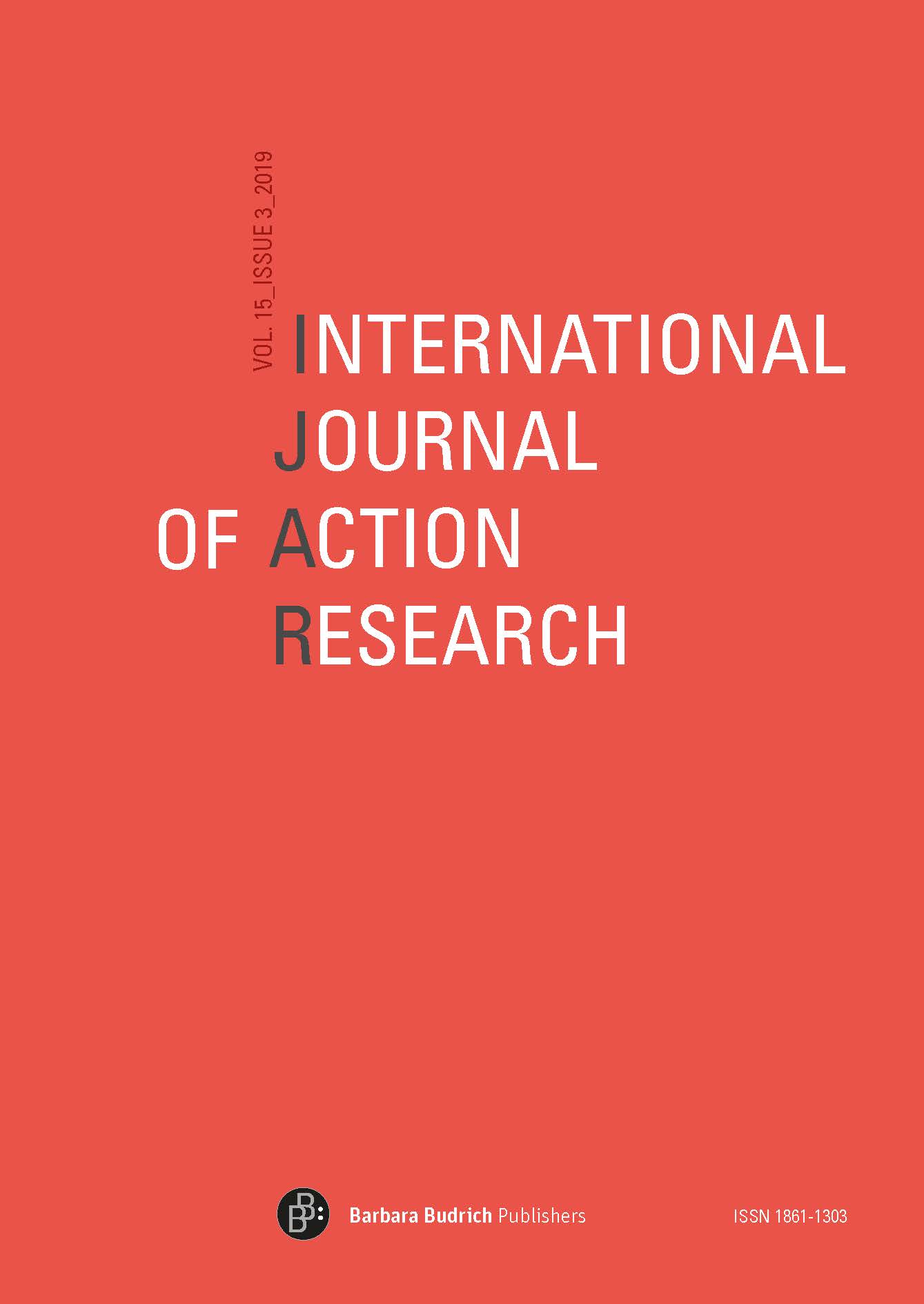

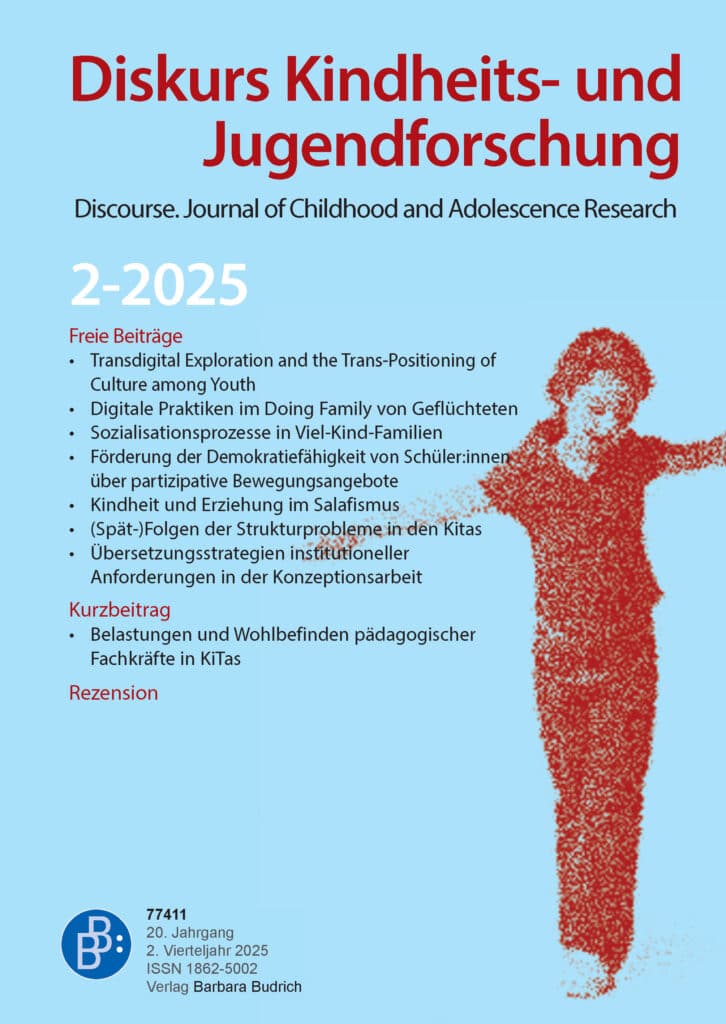
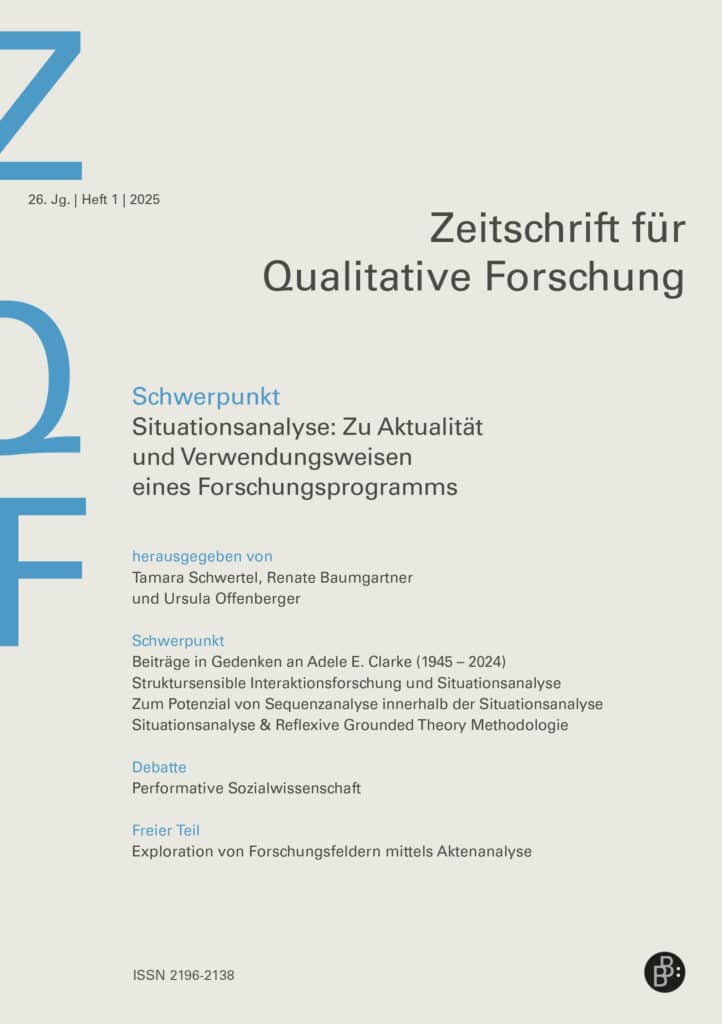
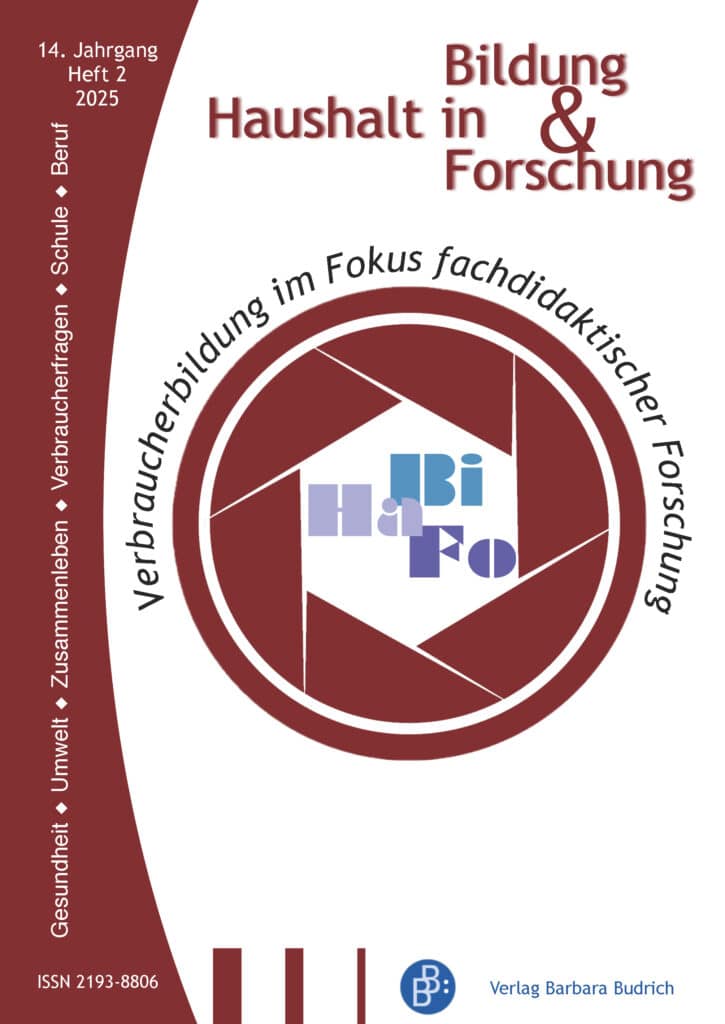
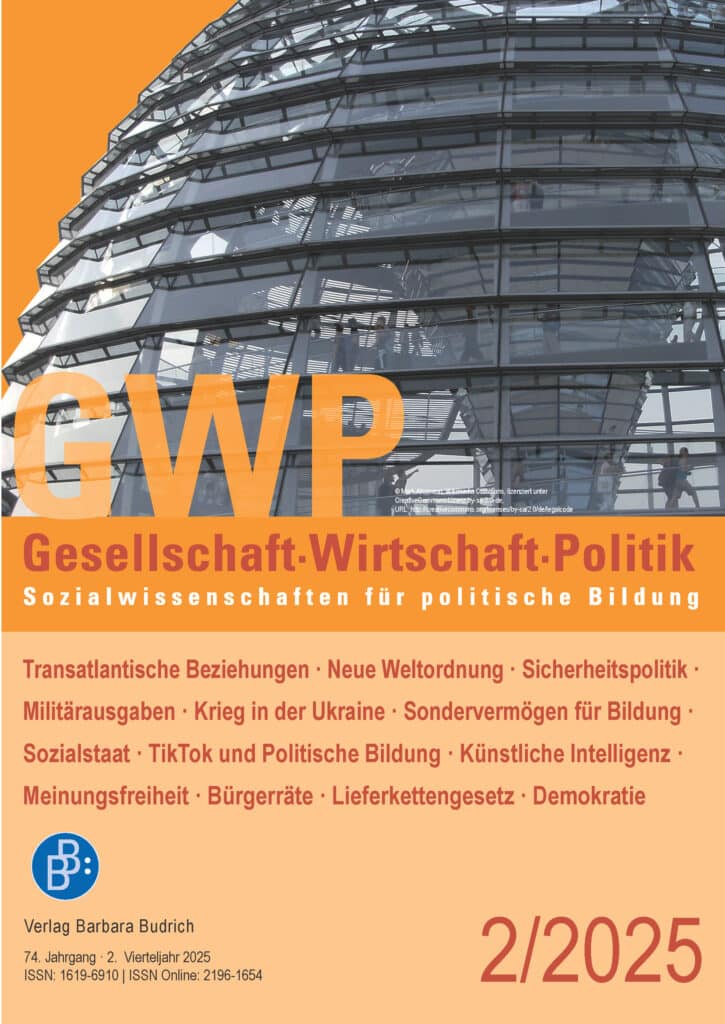
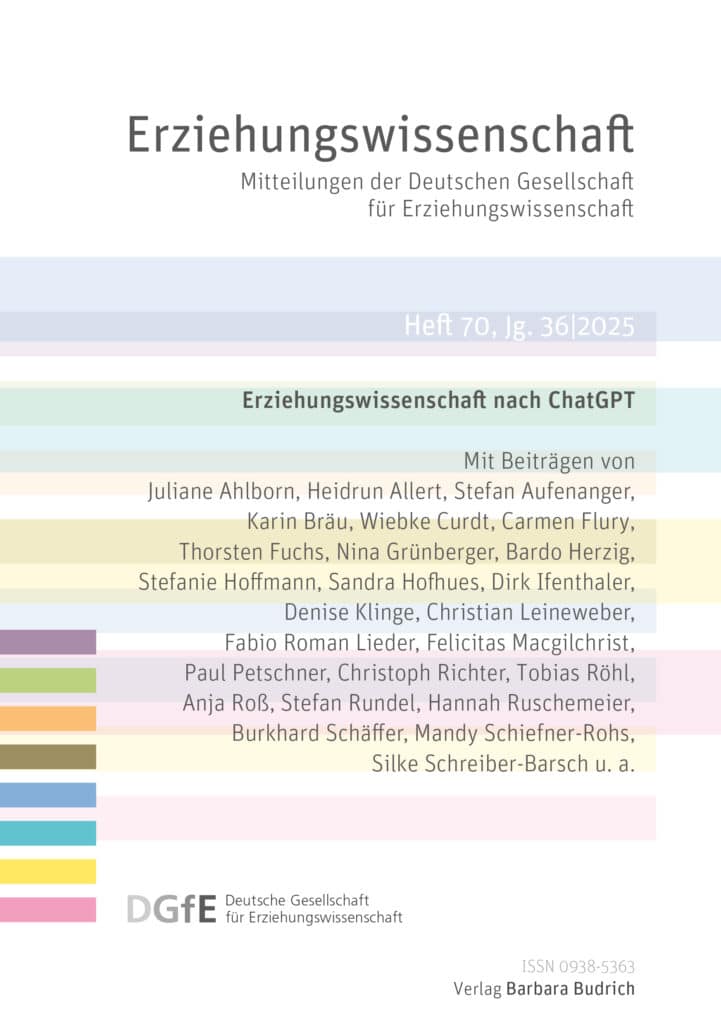

Bewertungen
Es gibt noch keine Bewertungen.